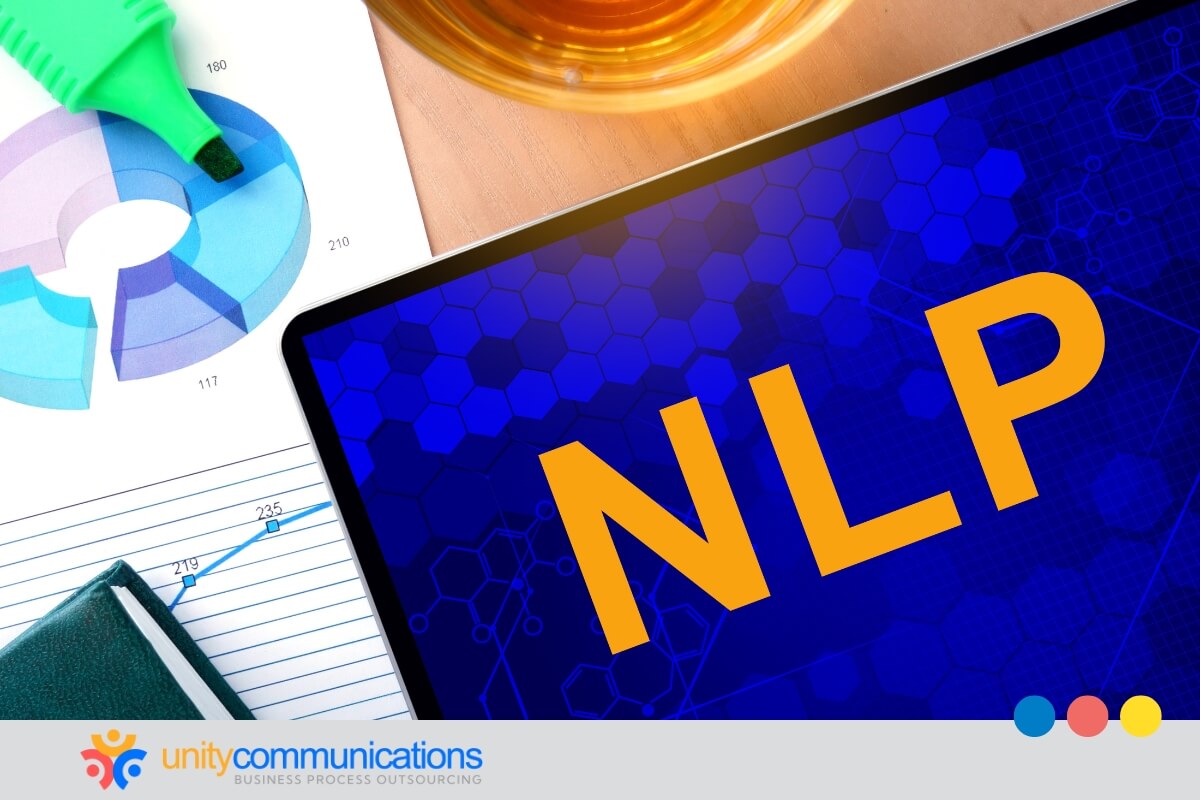IN THIS ARTICLE
Table of Contents
Industries, ranging from banking to retail, are witnessing the deployment of AI virtual agents. Unlike basic chatbots, these technologies can interpret intent, access contextual data, and even collaborate with human teams to provide seamless experiences.
Their practical applications, such as 24/7 customer support and process automation, make them a crucial part of today’s digital strategy. Forward-thinking companies deploy virtual agents to reduce costs while dramatically improving customer satisfaction.
This comprehensive guide reveals everything you need to know about AI agents, their powerful capabilities, and how they can transform your business operations.
What is an AI virtual agent?

An AI-powered agent is a software program that uses artificial intelligence (AI), natural language processing (NLP), and machine learning (ML) to interact with users conversationally.
Unlike traditional chatbots that rely on preset scripts, these agents can understand intent, process context, and respond with accuracy that feels closer to a human interaction. They act as digital representatives of your business. They:
- Answer frequently asked questions (FAQs).
- Assist with transactions.
- Troubleshoots issues.
- Guides customers through processes.
- Escalate complex cases to human agents when needed.
Learning from every interaction continuously improves its ability to provide relevant, personalized, and timely responses. For instance, a returning customer asking about their account balance can get a proactive recommendation, such as setting up alerts or exploring new services based on past behavior, along with the most recent update.
The market signals the growing importance of these tools. Gartner projects that by 2026, conversational AI deployments, including virtual agents, will reduce contact center agent labor costs by $80 billion.
Similarly, 92% of organizations plan to increase their investment in AI, signaling a widespread recognition of the strategic value of virtual assistants. AI virtual agents represent how companies prepare for a future where intelligent, always-on support is the norm.
Essential features that make AI agents game-changers
In addition to basic automation, an AI-powered virtual agent provides intelligent, scalable, and human-like support. What makes them valuable is their capacity to learn, adapt, and operate seamlessly across different business functions.
Below, we’ll explore the core features that make virtual AI agents a game-changer for today’s organizations.
1. NLP
The backbone of any AI-powered virtual agent is the capacity to understand natural language. With NLP, it can recognize intent, interpret slang, and process variations in phrasing that traditional chatbots can’t.
This reduces the need for rigid scripts and lets customers interact in their own words. For example, whether a customer types “I need help with my bill” or “Why’s my charge so high?” the agent understands both as a billing inquiry.
This ability to process context creates smoother, more human-like conversations. It speeds up problem-solving and reduces customer frustration.
2. Speech recognition and text-to-speech
For voice-based interactions, speech recognition and text-to-speech (TTS) are critical. Speech recognition converts spoken words into text that the virtual agent can process, while TTS transforms machine-generated responses into natural-sounding speech.
This technology enables AI-powered virtual agents to function in call centers, mobile apps, and smart devices, making them versatile across industries. For instance, you can call a bank, ask about account balances verbally, and instantly hear a spoken response.
With TTS and speech recognition, AI virtual agents offer accessibility, faster resolutions, and convenience, catering to customers who prefer voice-based communication over text.
3. Knowledge integration
One of the most powerful features of an AI-powered virtual agent is the ability to tap into enterprise systems and knowledge bases. The agent can provide highly accurate, real-time answers by integrating with customer relationship management (CRM) platforms, databases, FAQs, and third-party apps.
For example, if your customer wants an update about the status of their order, the virtual agent can question the order management system and respond instantly with the latest update. This is an example of an intelligent, dynamic interaction that feels personal and relevant.
Research shows that 76% of customers expect connected experiences across departments and channels. Knowledge integration ensures that virtual agents meet this demand, providing seamless service without forcing customers to repeat themselves.
4. Automation and workflow orchestration
AI agents are not limited to answering questions. They can execute business processes by connecting with backend workflows. Workflow orchestration allows them to book appointments, process payments, reset passwords, and update account details.
These agents are active participants in your operations. If you’re in healthcare, a virtual agent can help schedule a doctor’s appointment, verify insurance details, and send reminders automatically.
By orchestrating workflows, virtual agents reduce manual workload, eliminate repetitive tasks, and improve accuracy. The results are improved efficiency for your business and a smoother, more satisfying experience for customers.
5. Omnichannel support
Customers expect consistent support across multiple touchpoints. They want you to be accessible on your website, mobile app, social media, or a voice channel. An AI-powered virtual agent keeps service seamless and unified, regardless of the platform.
Suppose your customer initiates an inquiry via live chat, continues the conversation via email, and finalizes the process with a phone call. The virtual agent tracks these interactions across channels, reducing redundancy and improving the overall experience.
Omnichannel integration provides continuity and efficiency, which forges customer trust and loyalty.
6. Context awareness and personalization
AI-powered virtual agents don’t just provide generic answers. They personalize each interaction using historical data, customer profiles, and real-time information.
This means they can suggest products based on purchase history, troubleshoot recurring issues more effectively, or proactively remind customers of essential updates.
Personalization drives loyalty. Consumers tend to prefer brands that remember them and offer relevant recommendations.
By integrating CRM data and analytics, virtual agents can adapt their responses to each customer, providing a tailored experience that feels thoughtful and attentive rather than automated or one-size-fits-all.
7. Scalability and round-the-clock availability
Shifts and workloads limit human teams. AI-powered virtual agents scale effortlessly to meet demand. Whether it’s peak shopping season or a sudden surge in support requests, they can handle thousands of simultaneous conversations without delays.
Reliability, paired with 24/7 availability, ensures that customers receive help anytime, day or night. Gartner predicts that by 2027, chatbots and virtual agents will become the primary customer service channel for about 25% of organizations.
Businesses that adopt this technology will notice reduced wait times, lower operating costs, and consistent, round-the-clock service.
8. Seamless handoff to human agents
Some inquiries still require a human touch, regardless of how advanced AI becomes. AI-powered agents excel at identifying these situations. They can smoothly transfer customers to live agents.
What sets them apart is their ability to pass on complete interaction history, context, customer intent, and attempted solutions. That way, customers don’t need to repeat themselves. This improves resolution times and reduces frustration, strengthening overall satisfaction.
The handoff feature also creates a collaborative environment between AI and human teams. Virtual agents handle routine questions while humans focus on high-value, complex cases. Together, they deliver faster, smarter, and more empathetic customer support.
Examples of virtual agents

AI virtual agents come in various forms, each tailored to meet specific business needs. Understanding these categories helps you select the most suitable solution for your needs.
Here are the major types and examples of AI agents in real-world applications:
1. Customer service AI agents
Customer service virtual agents are the most widely adopted because they support 24/7 availability and quick resolution. They can answer frequently asked questions, handle billing inquiries, process returns, and even troubleshoot simple technical problems.
For example, you can use an AI agent to guide customers through resetting their router, avoiding the need for a live call with a technician.
The benefit is about consistency. Customers receive accurate, standardized information every time, which reduces confusion and boosts satisfaction. In turn, you lower operating costs by automating repetitive inquiries and freeing human agents to focus on complex cases. AI agents in customer service are one of the most effective examples of AI agents in action.
2. Sales and marketing AI agents
Sales and marketing virtual agents act as digital sales assistants, guiding customers through the buying journey. They can recommend products, upsell or cross-sell services, and personalize offers based on a customer’s browsing history or profile.
For example, in e-commerce, an AI virtual agent might suggest accessories to complement a recent purchase or remind customers of items left in their cart. In B2B environments, these agents can qualify leads by asking discovery questions before routing them to sales reps.
The automation shortens the sales cycle while maintaining a customer-centric experience. It also collects valuable insights into customer behavior, allowing you to fine-tune your campaigns.
These AI agents strike a balance between proactive engagement and data-driven intelligence.
3. AI agents in HR and employee support
AI agents deployed in HR and employee support streamline internal workflows by providing quick and reliable access to company resources. Your employees can use them to request time off, check payroll details, navigate benefit options, or find company policies without waiting for HR staff.
If you have a new employee, the virtual agent can provide a step-by-step guide to the onboarding process, helping new employees avoid missing any steps. Deployment leads to a more empowered workforce with faster access to the needed information.
Additionally, if you operate across the globe, these agents can also operate across multiple time zones, ensuring HR support is available at any time.
4. Healthcare AI agents
AI agents are being deployed as patient engagement assistants in the medical industry. In addition to appointment scheduling and prescription reminders, they can conduct pre-consultation screenings by asking patients about their symptoms, medical history, or lifestyle factors before their visit.
For example, a virtual agent could guide a patient through a series of structured health questions, summarize the responses, and pass them to the physician in advance. This would save time during consultations.
Meanwhile, patients would experience less waiting and a more personalized, efficient care journey.
How an AI agent benefits your business

While earlier sections highlighted features and use cases, the real question for you is this: What tangible benefits does it bring to the business as a whole? The benefits of AI virtual agents extend far beyond simple cost savings.
They enhance workflows and facilitate long-term scalability. Here’s a closer look.
1. Streamlining complex workflows
AI virtual agents are not reactive tools. They manage complex, multi-step workflows that once required heavy human involvement. Consider a customer needing to update their subscription plan.
Instead of contacting different departments for billing, technical adjustments, and confirmations, the virtual agent can handle the entire sequence in one interaction. This consolidation minimizes friction, reduces turnaround times, and provides customers with a smoother, more professional experience.
For your business, it means fewer handoffs, less room for error, and a streamlined operational flow that scales effortlessly.
2. Creating consistency across channels
Inconsistencies in customer communication can damage brand trust. AI virtual agents prevent this by standardizing responses across multiple channels.
Whether a customer reaches out through chat, email, social media, or a voice call, the interaction’s tone, accuracy, and quality remain consistent.
Consistency is crucial if your customers interact with your brand in different regions and time zones. Consistency protects your brand image by ensuring messages align with corporate values and policies.
3. Enabling proactive customer engagement
Unlike traditional support models that wait for customers to initiate contact, AI agents can be proactive in their approach. They can reach out with reminders, personalized offers, or updates before the customer even realizes they need them.
For example, an airline’s virtual agent might notify passengers of a gate change and automatically provide the new boarding details. Proactive engagement enables you to stand out in competitive markets, as customers feel genuinely cared for rather than merely accommodated.
4. Complementing BPO
Virtual agents provide an additional layer of efficiency for organizations that rely on business process outsourcing. To understand how outsourcing works, it is essential to consider the balance between human talent and technology.
Traditional BPO models focused on human labor to manage volume and costs. Today, BPO providers increasingly integrate AI-powered virtual agents into their services.
Combining the two means you get the best of both worlds: scalable, automated support for routine tasks and skilled human agents for complex needs. With a team of virtual AI and human agents, you can maximize flexibility, improve turnaround times, and enhance service quality.
5. Building long-term customer loyalty
The most significant benefit of adopting AI virtual agents is the long-term loyalty they help cultivate. Customers remember how you make them feel, especially in moments of need.
By delivering reliable, fast, personalized support, virtual agents contribute to positive experiences that strengthen trust over time.
When you combine it with proactive engagement, consistent communication, and seamless escalation to human agents when needed, you can create a service ecosystem that feels both intelligent and human.
Loyalty doesn’t come from transactions. It comes from relationships, and AI virtual agents play a direct role in building them.
The bottom line
Virtual agents are essential to modern customer service. Businesses across industries can scale support, streamline operations, and deliver the personalized experiences customers expect.
Whether managing simple inquiries, assisting human agents in real time, or orchestrating entire workflows, virtual agents have changed how companies engage with audiences.
If you’re ready to elevate your customer experience, now is the time to explore how AI-powered agents in a hybrid BPO model can help. A trusted provider offers smarter, faster, and more efficient ways to serve your customers.
Ready to transform your customer experience? Let’s connect to get started.





